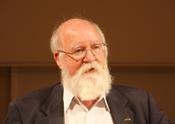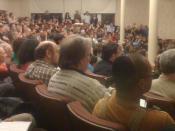Dennett and WilliamsÃÂI hate my life;ÃÂ ÃÂthis always happens to me;ÃÂ ÃÂI always mess up like this.ÃÂ Most people, at one time or another in life have said one or more of these statements, at least once. People bemoan their life circumstances and the things that happen to them, and some even bemoan who they are and what they do. These same people often blame such circumstances, personalities, etc., on their other life circumstances, other people, society, and if one is seeing a therapist, their parents. These targets of blame, I believe, are not valid explanations of causality, but rather, mere scapegoats used to avoid admitting that one is not necessarily making the best choices in life, and to avoid the effort and, or, difficulty that may be required in making different ones.
OneÃÂs life is oneÃÂs own responsibility, period. If one wants to see change in their lives, the responsibility for such change rests on them and only them.
This view, that I call ultimate personal responsibility, is what I hold as the center of my own personal morality. Simply stated; one is personally responsible for everything one does, and therefore any, and all, situations or consequences of those actions, regardless of Sphexishness, influence of the gods, etc. It is this view that I intend to prove through an examination of Daniel C. Dennett, and a light exploration of Bernard Williams.
Dennett writes of determinism, that is, the view we what we do, who we are, and even the apparently free choices we make, are pre-determined by our nature, by our programming, by what Dennett calls our sphexishness. Dennett sites the example of the Sphex, an insect that will check, and re-check her nest if any thing changes around it. Scientists proved this by moving the sphexÃÂs...


